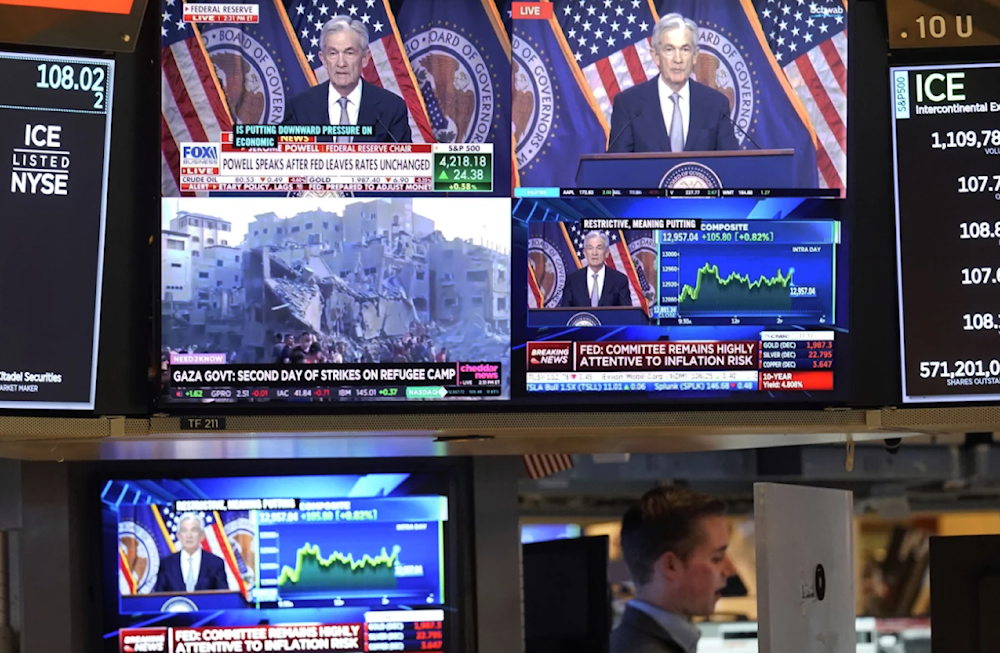Central banks risk sending the developed world into recession: OECD
New research indicates that harsh anti-inflation tactics are harming economic growth.
-

Federal Reserve Chairman Jerome Powell appears on several television screens on the floor of the New York Stock Exchange on November 1, 2023. (AP)
The Organization for Economic Cooperation and Development (OECD) has warned that central bankers' continuing battle to contain excessive inflation might send wealthy countries into recession next year.
In its global forecast, released earlier this week, fiscal tightening since early 2022 is hurting domestic demand progress, while interest rates in many nations continue to increase.
Although the OECD predicts a "soft landing" for the world's economy, it warns that the risks to that forecast are "pretty high" due to officials' actions. Clare Lombardelli, the OECD's chief economist, explained that it was "unclear how much of the past tightening has fed through and how much is yet to come."
According to the prediction, the OECD's 38 member countries would increase by 1.7% in 2023 and 1.4% in 2024. The global economy is expected to grow by 2.9% in 2023 and 3% in 2024, supported by non-member growth in India and China.
The report indicates that Germany will be the worst-performing major economy this year, shrinking by 0.1% before recovering to grow by 0.6% in 2024.
The Eurozone as a whole is forecast to grow by 0.6% this year, compared to 2.4% in the United States.
The OECD also warned that the current war on Gaza could cause regional dysfunction, emphasizing that “this could result in significant disruptions to energy markets and major trade routes, and additional risk repricing in financial markets, that would slow growth and add to inflation.”
Fed ready for rate increases, cautions against early end to tightening
Chairman Jerome Powell stated on Friday that the Federal Reserve remains prepared to increase interest rates if necessary.
Despite implementing 11 rate hikes over the past two years, inflation has not reached the desired levels, leading Powell to caution against prematurely declaring the end of monetary tightening by the central bank.
"Over the six months ending in October, core inflation ran at an annual rate of 2.5 percent, and while the lower inflation readings of the past few months are welcome, that progress must continue if we are to reach our 2 percent objective," Powell said in a live-streamed speech on monetary policy.
"It would be premature to conclude with confidence that we have achieved a sufficiently restrictive stance or to speculate on when policy might ease. We are prepared to tighten policy further if it becomes appropriate to do so."
A closely monitored inflation indicator by the Fed revealed a 3% annual growth rate for October. While this approaches the central bank's 2% target, it represents a slight deceleration from September's 3.4% expansion, according to data released on Thursday.

 3 Min Read
3 Min Read








